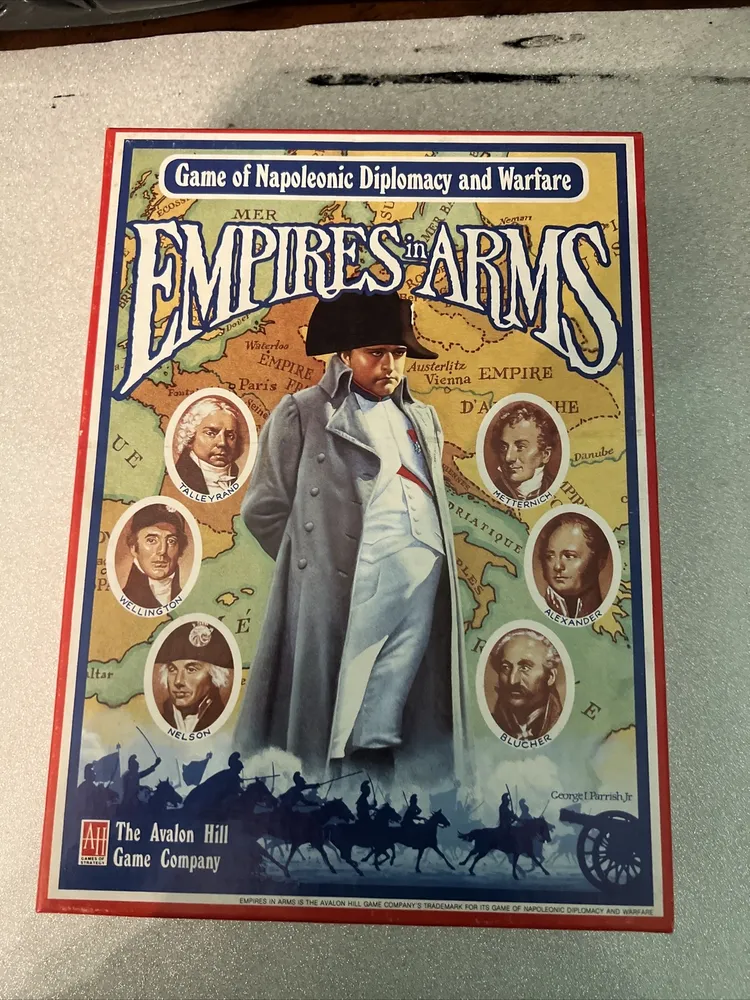Empires in Arms (1983)
Empires in Arms
Empires in Arms is a grand strategy board game that was published by the Australian Design Group in 1983 and licensed to the Avalon Hill Game Company in 1985. The game is set in the Napoleonic era of 1805-1815 and focuses on warfare, diplomacy, and economics during that time period.
Why is Empires in Arms Popular?
Empires in Arms is considered a significant game due to its complexity and depth, as well as its focus on diplomacy and economics in addition to warfare. It has been included in several lists of top board games, including Games Magazine’s top 100 games of 1986. The game has also been praised for its historical accuracy and attention to detail.
Game Components of Empires in Arms
How To Setup Empires in Arms
Setting up Empires in Arms involves several steps. Players bid victory points to determine which country they will control, with the highest bidder playing the chosen country. Each player then sets up their starting forces and resources according to the country’s unique economic and military power. The game board is populated with the initial dispositions of armies, navies, and other units. Players also establish their diplomatic stance and initial alliances.
Gameplay Mechanics and Game Objective
Game Phases
Game Objective
Player Experience
Empires in Arms offers a deeply immersive and complex gaming experience. Players must navigate intricate rules, manage resources, and make strategic decisions in diplomacy, warfare, and economics. The game is known for its lengthy playtime, often exceeding 200–250 hours for a full game. Despite its complexity, the game rewards strategic thinking and adaptability.
Pros
Cons
Personal Thoughts on Empires in Arms
Empires in Arms is for the dedicated wargamer or strategy enthusiast who relishes complex, long-term gaming experiences. It is ideal for those who enjoy deep strategy, historical settings, and the intricacies of diplomacy and warfare. While it may not be the best fit for casual gamers due to its complexity and length, it offers a uniquely rewarding experience for those willing to invest the time and effort. If you’re a fan of grand strategy and don’t mind delving into a game that’s as much about politics and economics as it is about warfare, then Empires in Arms is an absolute must-play.
We are supported by our audience. When you purchase through links on our site, we may earn an affiliate commission, at no extra cost for you. Learn more.

